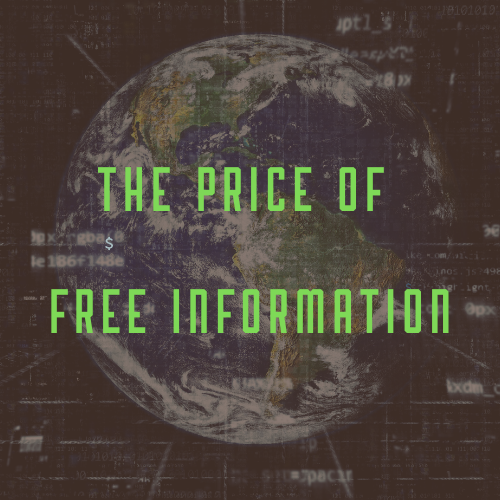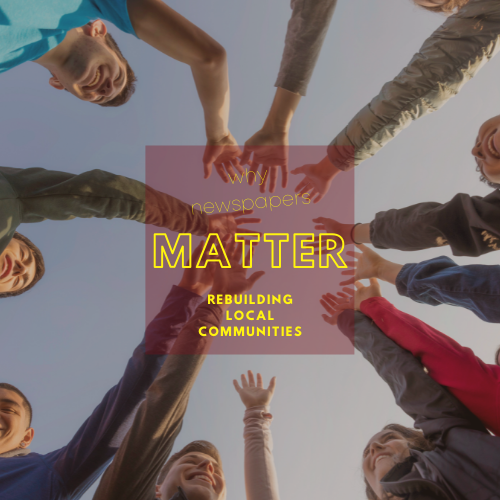Newspapers Unite to Speak Out
By: Brad Buchanan
At the behest of the Boston Globe, on August 16th, 2018, newspapers large and small across the United States spoke as one to protest being labeled an “enemy of the people” by the current President, not just once or twice, but hundreds of times. Trump, who is notoriously thin-skinned about any criticism of his administration, is working to delegitimize accurate reporting about the White House. Attempts to stifle truthful accounts of a president’s actions historically backfire, from Watergate to Iran-Contra to Iraqi weapons of mass destruction. As the character, Lancelot said in the Merchant of Venice, “the truth will out.”
A unified rebuttal by the press is understandable. After all, freedom of the press is the bedrock of democracy. An informed citizenry is essential to the proper functioning of a government designed “by the people, of the people, and for the people.” It is easy to see why publishers felt a need to speak out, to defend their position as the Fourth Estate of government.
While the sentiment expressed in the editorials is inarguable from a historical perspective, it may be instructive to consider the efficacy of such an action and even its necessity.
It is well known, and even acknowledged by many Trump followers, that the President uses bombastic language, and there is often a gulf between his words and his actions. The bluster about lowering emission standards and subsequent withdrawal from the Paris climate accord have a symbolic impact, but most likely will not dramatically affect progress toward a less carbon-based, more environmentally friendly future. The momentum of lessening our carbon footprint will continue to be driven by large states, such as California, multinational corporations and small businesses with a strong ecological ethos.
Another example is tough talk about immigration. During Obama’s term, there were over 3 million deportations, more than at any point in US history. Between 2006 and 2011 almost 700 miles of barriers and fencing were erected along the Mexican border. The legislation was supported by then-Senator Obama. But this did not engender collective outrage in Hispanic communities, possibly because Obama did not tout it from the Presidential podium as a step toward making “America Great Again.” With both carbon emissions and immigration, the gap between the President’s oratory and his abilities is vast. One recommendation to the newspaper industry, then, is to pay less attention to what Trump says and more attention to what he does or is capable of doing.
This will be difficult for an industry whose most fundamental tools are the words they use. How can news organizations be expected to discount the language and instead focus on the behavior? Freedom of the press is not only enshrined as a Constitutional protection, it is firmly established as a cultural component of American life. While the words are important, we cannot let them distort our collective sense of reality out of proportion with actual events.
Sometimes, though, the words Trump uses have an effect, especially with his loyal base. The actions of his supporters at recent rallies show that he is swaying public opinion, at least among his adherents. Jeering at reporters, signs stating “CNN Sucks” and other overt signs of visceral opposition to the press are becoming increasingly apparent. There are times when the President’s words do matter and may presage future actions. The press must be vigilant in seeing that there is no infringement of their responsibilities to the public.
One recent incident between the White House and reporters set off alarm bells across the media spectrum. CNN correspondent Kaitlan Collins was barred from attending a Rose Garden event, supposedly open to all members of the press, for asking “inappropriate questions” at an earlier gathering. Condemnation was universal from virtually all reputable news establishments. Fox News, for example, a competitor and frequent critic of CNN, issued an unequivocal statement of support for Collins and the importance of an uninhibited free press.
Outside of rhetoric, this was the Trump administration’s first foray into overtly limiting freedom of the press. It was a “weak” effort in the larger scheme of things. Yet, it should be noted that America has a precedent for jailing publishers who write defamatory articles about the government. Both John Adams and Abraham Lincoln did it. So it is not outside the realm of possibility that Trump will try something like this, although the probability of success is very low. Any attempts to limit freedom of the press will be met with extensive public outcry and if litigated, a supportive body of 1st Amendment jurisprudence that will be difficult to overcome.
What, then, did the unified voice of the newspaper industry accomplish? On an emotional level, the people within the industry must have felt better, knowing they had shown solidarity in standing up to acerbic and spiteful comments from the White House. From a symbolic perspective, it showed there is a devoted, cohesive and respected profession that is committed to its mission of keeping the public informed.
On the other hand, a valid question might be was it really necessary? The people who are going to read the editorials are people who read newspapers, those who arguably already respect the press. In that sense, it’s like preaching to the choir. The coordinated publication of the editorials has given the President ammunition to accuse the industry of colluding against him. Plus, the industry response may not have been necessary because the characterization of the press as the “enemy of the people” is a patent falsehood, and according to recent polls the majority of the electorate knows that. It is futile trying to defend yourself against someone committed to misunderstanding the role of a free press in a functioning democracy.
Newz Group provides state press associations with publisher support and archiving services alongside the most comprehensive newspaper monitoring in the greater Midwest.
Brad Buchanan is the CEO and founder of Newz Group. Brad has worked to help the journalism industry in America adjust to the digital world over the last two decades.




